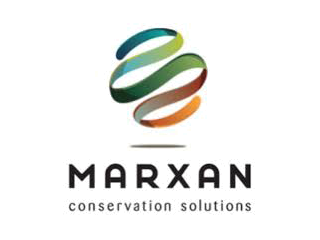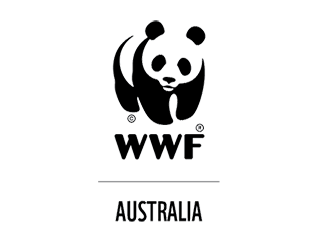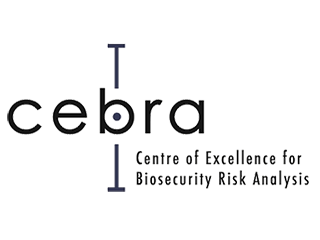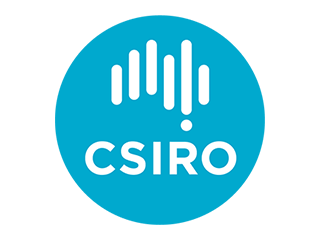Our collaborations
Together, we have a greater chance of achieving breakthrough
research and decisions that will lead to positive changes in the world.

At EcoCommons, we pride ourselves on building strong partnerships with national and international organisations in government, non-government and industry. To successfully build and become the platform of choice to analyse and model ecological and environmental challenges, we understand that we need to stay ahead of developments and emerging needs, and that we can’t do it alone. We must work closely with a diverse group of experts across various fields and domains to deliver a well regarded and sought after platform.
Since its inception in March 2020, EcoCommons has been approached by several organisations interested in collaborating on datasets, platform infrastructure and training resources. We have also been included in 18 expressions of interest for research investment, seven of which received funding in 2020, six through the Australian Research Data Commons (ARDC) and one through the Department of Home Affairs.
Australian Research Data
Commons (ARDC) Projects
AusTraits
A national database on functional and structural traits of Australia’s flora. AusTraits aims to improve the coverage, quality and access of data through data repositories like the Atlas of Living Australia (ALA) and platforms like EcoCommons to advance research and outcomes in plant science.
Focus of collaboration:
To give EcoCommons’ users access to AusTraits data for ecological models
Focus of collaboration:
To reuse and adopt the EcoCommons infrastructure for the AgReFed platform that offers researchers FAIR Agricultural data.
AgReFed
A platform for the transformation of agricultural research. AgReFed will enhance the way researchers gather, report and distribute their research. It will give researchers access to trusted, and reusable datasets, workflows and models, and facilitate collaborations that will lead to insightful policy and decision-making.
Biosecurity Commons
Intelligently managing our pests and diseases. Biosecurity Commons is a joint initiative of the Australian and Queensland Governments co-funded by the ARDC. Its charter is to deliver a secure, cloud-hosted platform for biosecurity modelling and data analytics for researchers, government and practitioners across organisations, as proposed by the National Biosecurity Committee’s Research and Innovation Working Group. The project aims to accelerate the development of repeatable models that can easily be deployed and accessed to support biosecurity research and management across jurisdictions in Australia.
Focus of collaboration:
To leverage the existing EcoCommons architecture to build a protected and permissioned environment for the Biosecurity Commons platform.
Focus of collaboration:
To co-host training materials on EcoCommons; and identify ecoacoustic use cases and verification of species distribution model outputs.
Open EcoAcoustics
A platform to manage, share and analyse ecoacoustic data. Open EcoAcoustics aims to facilitate the sharing of acoustic data and tools, and to enable data to be visualised and analysed through interfacing platforms, like TERN, ALA, and EcoCommons.
FishID
Transforming Australian aquatic ecosystem monitoring using AI. FishID will deliver a platform that will allow researchers to automatically detect and identify animals in underwater imagery across coastal and marine ecosystems.
Focus of collaboration:
To co-host training materials on EcoCommons.
Focus of collaboration:
To consult with stakeholders on safe data haven requirements for sensitive species information.
Sensitive Species Data Pathways Project
Sensitive Species Data Pathways from decision-making to research. The Sensitive Species Data Pathways Project will develop a national framework to enable the sharing of full resolution, threatened and sensitive species data. The framework will address issues such as licensing, access and authority, governance and programmatic standards.
Department of
Home Affairs Project
Federated Climate
Information Project
Streamlining the delivery of future climate knowledge for Australia’s Industries. The Federated Climate Information Project will develop tools to streamline the delivery of future climate knowledge to support decision-making and reporting for Australia’s industries and will also support Commonwealth objectives and initiatives related to climate and disaster risk information.
Focus of collaboration:
To give EcoCommons’ users access to high- resolution climate data for ecological models and climate projections.
New Collaborations
Learn about our more recent collaborations:
Focus of collaboration:
To deliver a standardised, ready-for-use, packaged solution for deploying, maintaining and operating a cloud-based JupyterHub service.
ARDC Interactive Analytics Project
The ARDC Interactive Analytics Project is a coordinated effort to deliver a standardised platform, consisting of a ready-for-use, packaged solution for deploying, maintaining and operating a cloud-based JupyterHub, a national virtual desktop as a service, and a national JupyterHub service which will be run on the Nectar Research Cloud. The virtual desktop data analytics platform will be the underpinning technology stack for all existing and proposed Virtual Laboratories and platforms supported on the Nectar cloud.
MARXAN on Azure
Marxan is a world leading spatial conservation planning tool that enables democratic, repeatable and credible planning processes for land, freshwater and ocean systems. Marxan has partnered with The Nature Conservancy, the European Commission BIOPAMA project, and Microsoft to bring the platform to the Azure cloud, scaling Marxan’s infrastructure for global accessibility and empowering users with the tools and data they need to make smarter decisions for the planet.
Focus of collaboration:
To use outputs from Species Distribution Models on EcoCommons as inputs for Marxan’s Spatial Prioritisation Tool.
Focus of collaboration:
To develop WWF-informed use cases for EcoCommons’ integration with MARXAN on Azure.
WWF Australia
The World Wide Fund for Nature (WWF) Australia is one of the leading voices for nature in addressing some of the world’s biggest environmental issues. WWF’s mission is to conserve nature and reduce the most pressing threats to the diversity of life on Earth. WWF Australia supports many strategic priorities such as; conserve nature with equity; return the climate to a stable state; support planet-friendly food; save threatened species; protect our marine life; and engage millions as active stewards and investors of nature.
Collaborate with us
We welcome the opportunity to work with organisations interested in leveraging and collaborating with us on platform infrastructure, datasets, workflows, models, resources and more.

Our partners
-

-

- EcoCommons Australia received investment (https://doi.org/10.47486/PL108) from the Australian Research Data Commons (ARDC). The ARDC is funded by the National Collaborative Research Infrastructure Strategy (NCRIS).




















